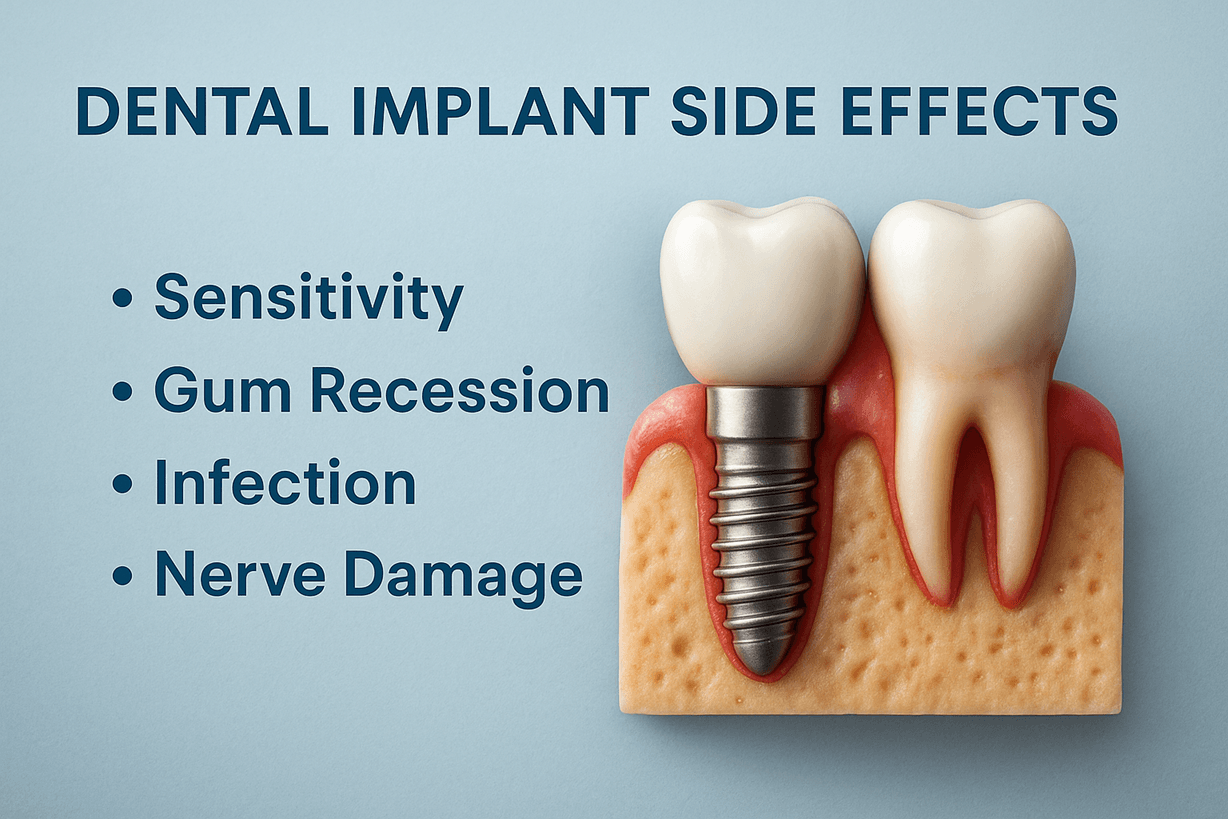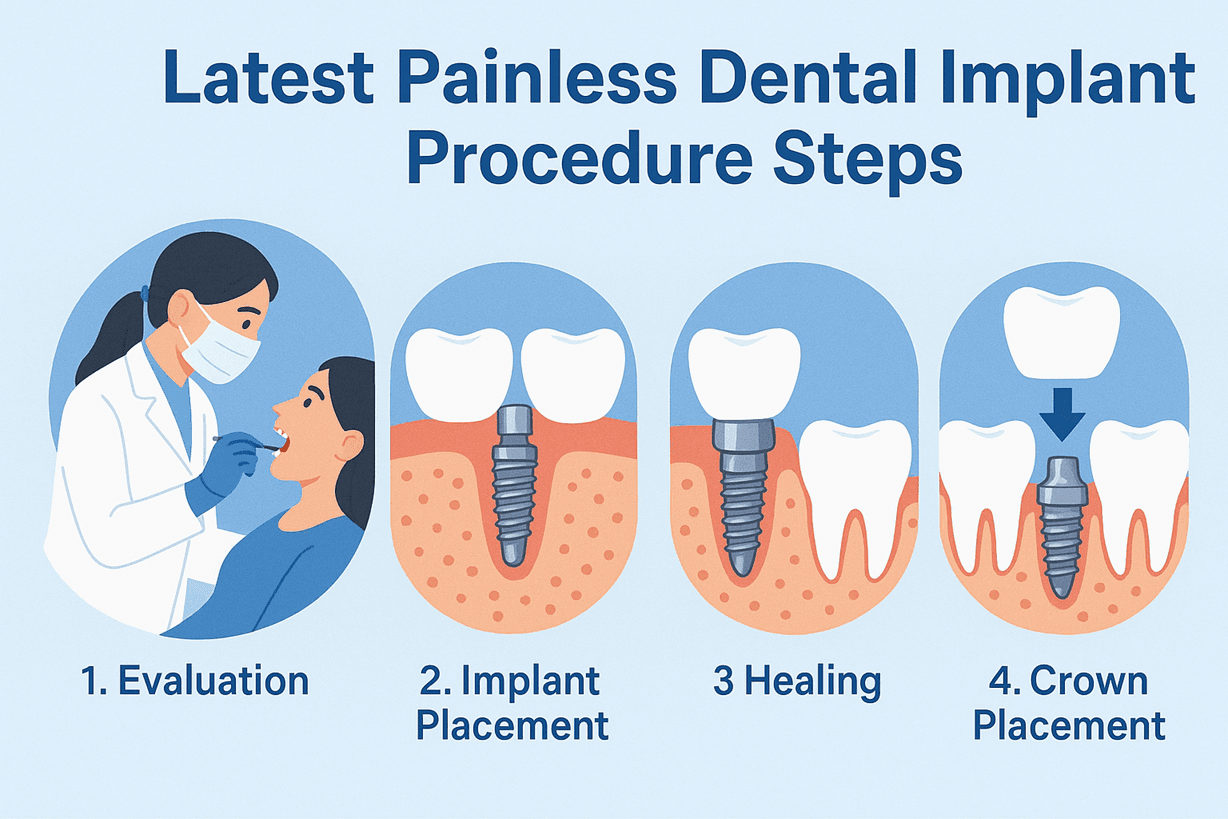Contents
- Introduction to Ceramic Veneers
- Treatment Preparation for Ceramic Veneers
- Cost of Ceramic Veneers in India
- Benefits of Ceramic Veneers
- Risks of Ceramic Veneers
- Final Thoughts
- Conclusion
Are you tired of hiding your smile behind closed lips or feeling self-conscious about stained, uneven teeth?
Ceramic veneers might just be the solution you've been searching for. These thin shells are designed to cover the front surface of your teeth and create a picture-perfect appearance.

In this comprehensive guide, we'll dive into everything you need to know about ceramic veneers – from how they work to their benefits and potential drawbacks.
Get ready to achieve a dazzling smile that will light up any room!
Introduction to Ceramic Veneers
Ceramic veneers are a popular cosmetic dentistry option for smile makeovers. These thin, durable shells are custom-made to match the exact shade of your natural teeth, making them ideal for covering stained or discoloured teeth.
Veneers can also improve the appearance of misaligned, misshapen, or chipped teeth and can even close small gaps between teeth. Ideal candidates for ceramic veneers have healthy tooth enamel and no existing dental problems such as gum disease.
To get ceramic veneers, find a reputable cosmetic dentist. During your consultation, your dentist will evaluate your oral health and discuss treatment options.
If the veneers are right for you, impressions of your teeth will be taken and sent to a dental laboratory to create your custom veneers. Once ready, the veneers will be bonded to your teeth in a follow-up appointment.
Treatment Preparation for Ceramic Veneers
Ceramic veneers are thin porcelain shells bonded to the front surfaces of your teeth, improving the appearance of your smile. They correct cosmetic issues like gaps, discolouration, and misshapen teeth.
Here's the preparation process:
- Consultation: Your dentist will assess if veneers are suitable for you. If so, they will take X-rays and impressions of your teeth to create custom veneers.
- Preparation: In a second appointment, your dentist will clean your teeth and roughen their surfaces for better bonding.
- Placement: The veneers are placed on your teeth, checked for fit, and then bonded with a special light to harden the material.
After placement, care for your veneers by brushing and flossing daily and visiting your dentist every six months for checkups and cleanings. This ensures your veneers stay in good condition.
Your dentist is also available to answer any questions you may have about caring for your new smile.
1. Consultation with Your Dentist
Your dentist should be consulted before getting ceramic veneers. The American Academy of Cosmetic Dentistry (AACD) recommends that patients considering veneers consult with an AACD Accredited Member dentist.
During the consultation, your dentist will examine your mouth and teeth to determine if you are a good candidate for veneers and discuss the procedure with you in detail.
They will also go over the potential risks and side effects associated with the treatment.
2. Evaluation of Oral Health
There are many ways to evaluate oral health, but one of the most important is to visit a dentist regularly. A comprehensive dental exam can help detect problems early and prevent them from getting worse.
During a dental exam, the dentist will check for tooth decay, gum disease, and other problems. They will also assess your risk of developing these conditions in the future. Based on their findings, they may recommend treatment options such as veneers.
3. Customized Treatment Plan
A customized treatment plan is tailored to meet the unique needs and goals of each patient.
This personalized approach involves a thorough evaluation of the patient's oral health, discussing their specific concerns, and developing a comprehensive strategy that addresses their individual dental issues.
By considering factors such as medical history, lifestyle, and aesthetic preferences, the dentist ensures optimal results and patient satisfaction.
4. Teeth Preparation
If you're considering ceramic veneers, start with a consultation with a cosmetic dentist. If veneers are right for you, the preparation process involves:
Enamel Removal: Your dentist will remove a small amount of enamel from the front surfaces of your teeth to ensure the veneers sit flush and look natural. This is done under local anaesthesia.
Impressions: Impressions of your teeth are taken and sent to a dental lab to create your custom veneers. Temporary veneers may be placed until your permanent ones are ready.
Placement: Once the permanent veneers are ready, your dentist will clean and dry your teeth before bonding the veneers in place using a special light to harden the bonding material. Any excess material will be trimmed away, leaving you with a beautiful new smile!
5. Impression of Teeth
Taking an impression of your teeth is a crucial step in many dental procedures, including the creation of custom ceramic veneers. This process involves making a precise mold of your teeth to ensure the final restoration fits perfectly.
If needed, temporary veneers may be placed on your teeth to protect them while the permanent veneers are being crafted.
Accurate impressions are essential for the success of your veneers, ensuring they fit well and blend seamlessly with your natural teeth.
6. Placement of Temporary Veneers:
After taking impressions for your custom ceramic veneers, your dentist may place temporary veneers to protect your teeth and maintain aesthetics while the permanent ones are being made.
This involves lightly roughening the surface of your teeth and using a temporary bonding agent to secure the veneers. Temporary veneers help you get used to the look and feel of your new smile, ensuring comfort and functionality until your permanent veneers are ready for final placement.
7. Bonding of Permanent Veneers
Permanent veneers are a popular choice for those looking to improve their smile. Made from porcelain or composite resin, veneers are thin, tooth-coloured shells that are bonded to the front of your teeth.
Veneers can be used to correct a wide variety of cosmetic dental issues, including gaps, chips, and stains.
If you're considering permanent veneers, it's important to understand the bonding process. Bonding is a two-step process that involves first roughening up the surface of your natural teeth so that the veneers can adhere properly.
Once the surfaces have been prepared, the veneers are then bonded to your teeth using a special adhesive.
The bonding process is usually quick and painless, and it typically takes just one or two visits to your dentist to complete. Once your permanent veneers are in place, they should last for many years with proper care.
Cost of Ceramic Veneers in India
The cost of ceramic veneers in India typically ranges from Rs. 7,000 to Rs. 15,000 per veneer. This price can vary based on factors such as:
- Location: Dental clinics in metropolitan cities like Delhi, Mumbai, and Bangalore tend to charge more due to higher overhead costs.
- Dentist's Experience: More experienced and skilled dentists may charge higher fees, but their expertise can lead to better results.
- Number of Veneers: Patients needing multiple veneers might negotiate a lower cost per veneer.
- Dental Tourism: Some clinics offer competitive pricing to attract international patients seeking affordable dental care.
When choosing a dental clinic, consider not only the cost but also the dentist's experience, the quality of materials used, and the clinic's reputation to ensure long-lasting and satisfactory results.
Factors Affecting the Cost Of Teeth Veneers In India
The cost of veneers in India can vary depending on several factors, such as the type of veneer material used, the number of veneers required, the clinic or hospital chosen, and the city where the treatment is carried out.
Clinic or Hospital: The cost of teeth veneers in India can vary greatly depending on which clinic or hospital you choose. Private clinics and hospitals tend to charge more than government hospitals.
City: The cost of teeth veneers in India also varies depending on which city you have the treatment done in. Metros like Mumbai, Delhi, and Bangalore will be more expensive than smaller cities.
Type of Material: The type of material used for your teeth veneers will also affect the cost. Porcelain veneers are usually more expensive than composite veneers.
Several Veneers are Required: The number of teeth that require veneering will also play a role in determining the cost.
A full set of upper and lower teeth may require 8-10 veneers, while a single tooth may only require one or two.
Average Cost of Single Ceramic Veneer In India
Getting ceramic veneers is a big investment. They usually cost between $988 and $2,495 per tooth, according to the National Institutes of Health (NIH).
But the cost varies depending on how many veneers you get, the tooth's location, and whether your dentist charges by the tooth or by the veneer.
The average cost of a single ceramic veneer in India is around Rs. 15,000. This includes the cost of the material, the procedure, and the follow-up appointment.
The price may vary depending on the city you live in and the dental clinic you visit.
Benefits of Ceramic Veneers
Ceramic veneers offer a wide range of benefits for patients looking to enhance the appearance of their teeth.
Here are some of the most significant benefits of ceramic veneers:
1. Enhanced Appearance:
One of the primary benefits of ceramic veneers is that they can help improve the appearance of teeth.
Veneers are customized to fit over a patient's existing teeth and can be designed to match the size, shape, and colour of the surrounding teeth, resulting in a natural-looking, beautiful smile.
2. Stain-Resistant:
Unlike natural teeth, ceramic veneers are highly resistant to stains from foods and drinks like coffee, tea, and red wine.
This means that patients can enjoy their favourite foods and drinks without worrying about their veneers becoming discoloured or stained.
3. Durable:
Ceramic veneers are made from high-quality materials that are durable and long-lasting. With proper care and maintenance, ceramic veneers can last up to 10 to 15 years or even longer.
4. Minimal Alteration:
To place ceramic veneers, only a small amount of the natural tooth structure needs to be removed, making the procedure minimally invasive compared to other cosmetic dental treatments.
5. Easy Maintenance:
Ceramic veneers are easy to maintain and require no special care beyond regular brushing, flossing, and routine dental check-ups. Patients can enjoy their new smile without any additional maintenance or special care.
6. Improved Self-Confidence:
Many patients report feeling more confident and self-assured after receiving ceramic veneers. A beautiful, natural-looking smile can enhance one's overall appearance and boost self-esteem.
7. Customizable:
Ceramic veneers are highly customizable and can be designed to fit the individual needs and preferences of each patient.
Patients can work with their dentist to create a unique, personalized smile that meets their specific goals and desires.
Risks of Ceramic Veneers
While ceramic veneers offer numerous benefits, there are also some potential risks associated with this dental treatment.
These are the risks include:
1. Sensitivity:
Some patients may experience sensitivity to hot or cold temperatures after getting ceramic veneers. This is because a small amount of the natural tooth structure needs to be removed to make room for the veneer, which can leave the tooth more sensitive.
2. Damage to Natural Teeth:
To place a ceramic veneer, a small amount of the natural tooth structure needs to be removed. In some cases, this removal can weaken the tooth and make it more susceptible to damage or decay.
3. Discomfort:
After getting ceramic veneers, patients may experience some discomfort or soreness in the gums or teeth. This discomfort should subside within a few days to a week.
4. Irreversible:
Once the natural tooth structure is removed, it cannot be replaced. This means that getting ceramic veneers is an irreversible procedure.
5. Cost:
Ceramic veneers can be expensive, and insurance may not cover the entire cost of the treatment.
6. Maintenance:
While ceramic veneers are easy to maintain, they still require proper care and maintenance.
Patients will need to continue brushing and flossing regularly and schedule routine dental check-ups to ensure their veneers remain in good condition.
7. Replacement:
Over time, ceramic veneers may need to be replaced due to wear and tear or damage. This can add to the overall cost of the treatment.
While ceramic veneers offer many benefits, patients need to consider the potential risks before undergoing this dental treatment.
Patients should discuss their options with a reputable dental professional to determine if ceramic veneers are the right choice for them.
With proper care and maintenance, ceramic veneers can provide patients with a beautiful, long-lasting smile.
Final Thoughts
When considering whether or not to get ceramic veneers, there are a few things you should keep in mind. First and foremost, veneers are an investment.
They’re not cheap, and they’re not covered by insurance. But if you’re looking for a way to transform your smile, they may be worth the cost.
Veneers are also not reversible. Once they’re bonded to your teeth, they can only be removed by a dentist. So, you want to be sure you’re ready to commit before you take the plunge.



